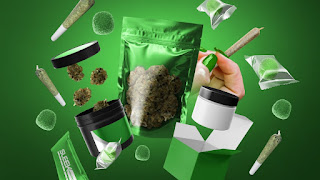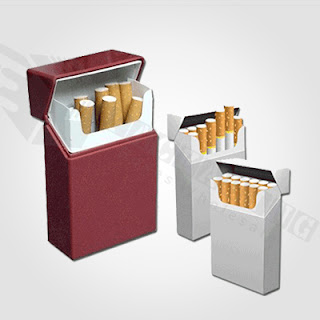The World of Cannabis Concentrate Packaging Labels An Introduction
Whether you're growing, manufacturing, or distributing Cannabis Concentrate Packaging products, the legal landscape currently contains a potential minefield of requirements. Due to simple labelling omissions or errors, businesses that do not pay close attention to detail can easily find themselves on the wrong side of the law. This is why working with a labelling company that is familiar with your state's legal requirements is so important.
What Is The Difference Between Marijuana And Cannabis Concentrate Packaging?
Cannabis is defined by the Food and Drug Administration (FDA) as the Cannabis sativa plant, which produces marijuana and hemp. The FDA is particularly concerned about two active chemical compounds found in the plant: delta-9-tetrahydrocannabinol (THC) and cannabidiol (CBD).
The amount of THC that can be present in hemp plants used in manufacturing is regulated by the FDA, with specific limits placed on the amount of THC that can be present in hemp plants used in manufacturing. These restrictions have been loosened as a result of recent changes in federal and state laws.
The FDA has classified parts of the cannabis plant as a Schedule I controlled substance due to THC's psychoactive effects. Since 1970, marijuana has been classified as a controlled substance, but state laws have recently relaxed many of the restrictions. Despite the fact that marijuana has been legalised in several states for medical and recreational use, the federal government still considers it a controlled substance that must be labelled as such.
Marijuana products must be properly labelled in order to comply with FDA controlled substance regulations as well as state laws in states where it has been legalised. Depending on where you live, different states require different notifications and warnings on Cannabis Concentrate Packaging labels. Consult a professional who is familiar with your state's labelling requirements when deciding how to package your marijuana products.
What Is The Importance Of Proper Marijuana Labeling?
Due to the varying legal requirements for marijuana labelling in different states, we recommend consulting with a professional label provider who is well-versed in Cannabis Concentrate Packaging labelling laws and regulations.
Product Compliance Is The Responsibility Of Both The Producer And The Seller.
Changes in the specific requirements for labelling can easily lead to oversight by someone unfamiliar with the requirements for Cannabis Concentrate Packaging labelling.
Failure to comply with legal Custom Concentrate Packaging and related product labelling requirements may result in the following penalties:
Fines are very expensive.
Product recalls are common.
Revocation of a licence or certification
Closure of a business
Marijuana packaging laws vary by state and can change at any time, so knowing your state's legal packaging requirements is crucial for marketing and distributing your product. Arizona, for example, has no specific labelling requirements, but it does require child-resistant Cannabis Concentrate Packaging. Other states are more stringent, imposing a slew of new requirements for package design and labelling.
Packaging Design
Brands must ensure that they are in compliance with local and federal laws before beginning packaging design.
Some states require opaque and resealable packaging in addition to childproof packaging. Many states also demand that the artwork on the packaging is not appealing to minors.
In some cases, the packaging must be small enough to hold no more than one month's worth of the prescribed dosage. In some states, individual packaging for each dose is even required.
Custom Marijuana Label Requirements
In addition to legal packaging, labelling requirements can be extensive and vary greatly by state. Some of the most common label regulations are as follows:
The font and the wording Labels must be printed in legible English and at specific font sizes in some states.
Visibility. In states where visibility is required, labels on packaging may need to be unobstructed and visible.
The manufacturer's information. Manufacturer information, such as the name of the producer, cultivation centre, brand name, or other information that identifies the product's manufacturer or distributor, is required in some states.
Testing and expiration In states where testing is mandated, labels must frequently include both state testing dates and detailed results. The state may require quality testing for pesticides, solvents, and other pollutants or biological contaminants.
Ingredients with a high level of activity. As with many pharmaceuticals, states may require that labels list all active ingredients in their product, along with a percentage of content by weight for each active-controlled ingredient.
Patients and doctors will find this information useful. In states where medical marijuana is legal, a prescription is required. Medical Marijuana Concentrate Packaging labels are frequently required to comply with pharmaceutical labelling requirements, which include the patient's and prescribing physician's identifying information.






Comments
Post a Comment